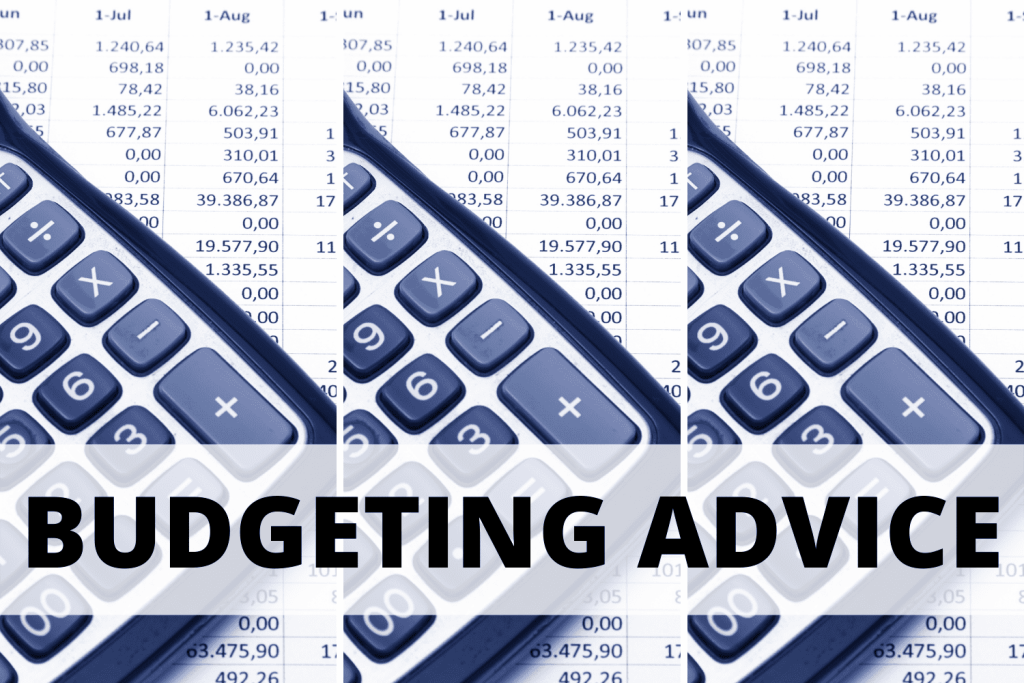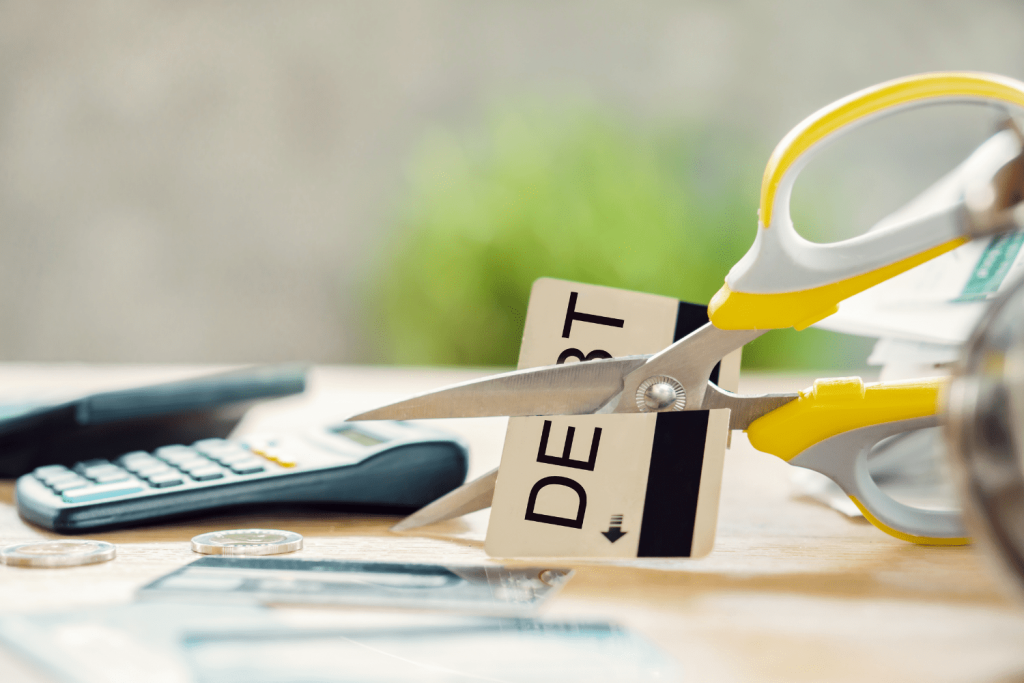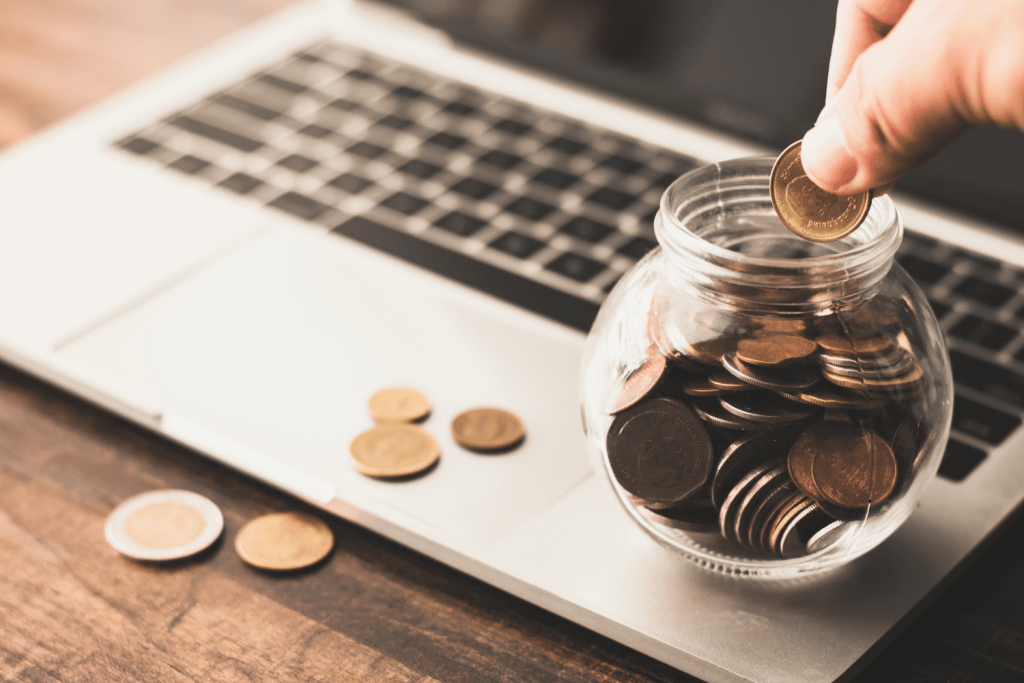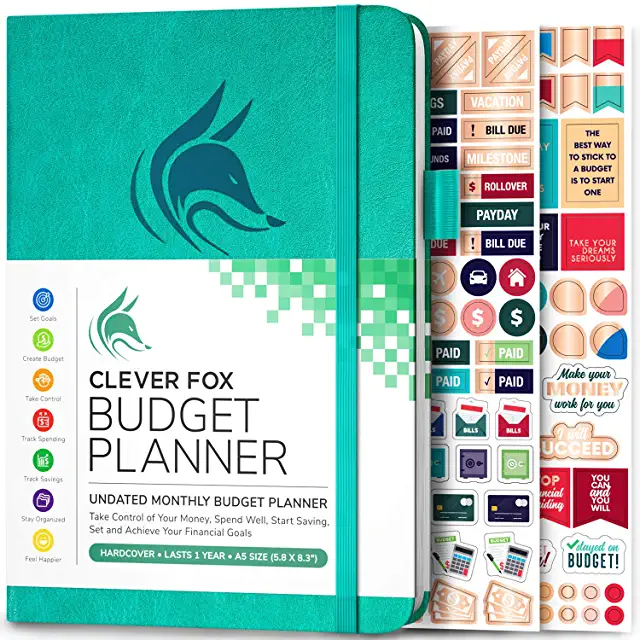Taking control of your money and sticking to a budget is really difficult. These five pieces of budgeting advice can really help you stay on track, and tame your finances.

Coming up with and sticking to a monthly budget can be an overwhelming task. If you’re like me, you might have struggled with this month after month and sometimes even given up. Here are five pieces of budgeting advice that I’ve implemented that have really worked in staying on track.
You’re going to learn about finding a system that works for you, banishing debt, using cash envelopes, leaving space in your budget, and paying attention.
After learning about these pieces of budgeting advice, you’ll be extra prepared for writing and sticking to your next monthly budget.
This post is all about the five best pieces of budgeting advice that everyone should know.
Table of Contents
1. Find a System that Works For You
There are lots of systems that are recommended, and I’ve tried many of them. What I’ve found is that there are good points and bad points with all of them.
Every person is unique, and the way that they process information is different; therefore, there is no one size fits all budgeting system.
The three main types of budgeting systems include:
Paper Tracking
Paper tracking involves using a budgeting worksheet or budget planner. There are several pros and cons to using paper tracking.
Pros:
- For people who need to physically handwrite their budget and each monthly expense, this can be a great tool for success. Research shows that handwriting information can help you understand and retain it better.
- You can carry it with you wherever you go for reference.
- There are many printable systems available, and are great if you are motivated by an aesthetically pleasing layout while budgeting.
Cons:
- If you budget with another person, it isn’t easily accessible to both people while you’re in the process of purchasing.
- You must do all of your own calculations. Because you’re writing on paper, then a calculator will become your best friend. This could leave room for errors in your math.
- It’s easy to cheat. By cheat, I mean it’s easy to leave transactions out. In order to have a successful budget, you must track all expenses. If you’re handwriting each transaction, it’s easy to not write down certain expenses, because you don’t want to admit to them. (I’ve totally done this before.)
If you’re looking for an already set up for you planner, check out this highly recommended Clever Fox Budget Planner by Amazon users.
Online Apps
Another popular way to create and track your budget is by using online apps.
Pros:
- It helps to keep multiple people on track. If you have a spouse or significant other who is also spending out of your accounts, using an app makes reviewing and keeping up with your budget super simple.
- You can access your budget from anywhere. Most apps are available on devices and desktop, so you can quickly check on where you are with your spending while you’re at a store, and before you make a purchase.
Cons:
- Can be difficult for people who need something more physical or to use their hands for deeper understanding.
- For best use, they ask you to connect your bank account to download your information. This would definitely be a con for anyone who is a fan of personal privacy.
My favorite online app for budgeting is EveryDollar. It is simple to use, and has a free option.
Spreadsheets
Spreadsheets are a great system for budgeting, because it can offer some of the same features of online apps, but with more flexibility.
Pros:
- Auto-calculates all of your expenses, leaving out room for error.
- You can set it up in many different ways to calculate exactly the information that you are wanting to see.
- Spreadsheets are easily shared with others for joint budgeting.
Cons:
- Not quite as accessible as an online app. While most online spreadsheets have an app available, it is usually not as easy to read from a mobile device as an app.
- Again, it’s easy to cheat. Because you’re manually entering your data, it’s easy to leave out transactions.
I like to use Apple Numbers for budgeting. They already have a budget template for you to use, it’s free with an Apple account, and has a free app for your mobile device.
2. Banish Debt
One of the most life-changing pieces of budgeting advice that I’ve implemented is to eliminate all debt.
Not having debt creates a sense of freedom when doing your monthly budget. Not only does it free up money that can be now allocated to savings, giving, or spending, but it also lifts a weight that sometimes isn’t even felt until it’s gone.
I highly recommend using the debt snowball method to effectively banish debt from your budget for good. I used it to pay off over $107,000, and free up over $700 in my monthly budget each month.

3. Use Cash Envelopes
If you want to make a quick improvement in your monthly budget, switch to using cash envelopes for regular spending, such as grocery, gas, personal spending, and anything that you’re doing long term savings for.
Research shows that if you use a card for purchases, you tend to spend 20% more. This is why stores are always trying to get you to sign up for their credit card.
Don’t fall into the trap, and stop using a card.
Using cash also helps you stay on track with your budget. If you only have $80 left in your grocery envelope for the week, then you only have $80 to spend.
I like to make my own cash envelopes. You can pick up a selection of mine to get you started.
4. Leave Space in Your Budget
It is imperative that you leave space in your budget for unexpected expenses or overages. This is an important step for me each month, as I used to budget all the way down to zero, and then I would end up blowing my budget within the first week of the month.
You can still budget down to zero dollars, but first, add a buffer or miscellaneous line item to your budget. When your office suddenly takes up a collection for a colleague, you decide to tip your waitress a little extra at a special dinner, or a couple of your bills were higher than expected, then you’re totally covered.
Your buffer may vary depending on how big your budget is, but most recommendations are between $100 and $200 per month.

5. Pay Attention
So, I’ve saved the one that I believe is the most important piece of budgeting advice for last, and that is to pay attention.
This was my downfall for my first 20 years of adulthood. Sad, right?
You need to pay attention to how much money you are making each month, and where all of that money is going. Trust me, if you don’t track your spending, the money will magically disappear to places like Hobby Lobby, Starbucks, eating out, or whatever your weakness is.
Below are some steps that have helped me to be more thoughtful about my finances, without having them take over every waking thought:
- Start your upcoming month’s budget at least one week before payday. This will give you time to think through every expense that might be coming up that month, and add them to your budget before the month starts.
- Track your purchases each day by writing them on an expense tracker, either in your budget planner, online app or spreadsheet before you go to bed. This keeps your budget up to date daily.







